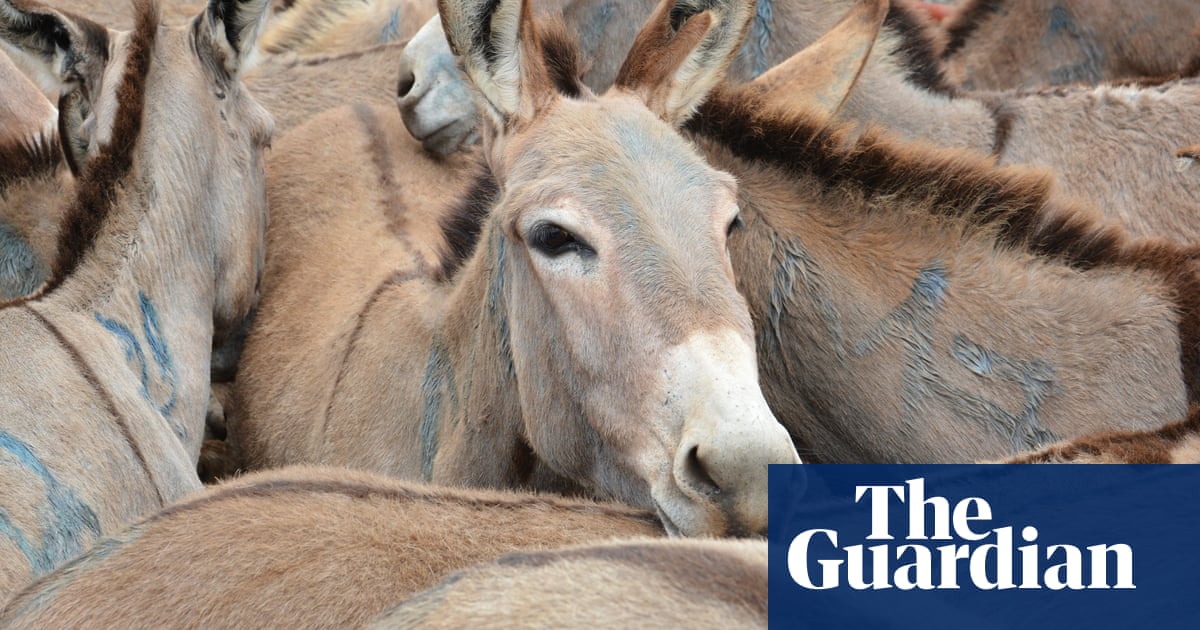
Re your editorial (The Guardian view on China, Africa and disappearing donkeys: an unexpected crisis offers a clue to perils ahead, 25 June), last year, The Donkey Sanctuary revealed at least 5.9 million donkeys are slaughtered for their skins every year to produce ejiao, a traditional Chinese medicine. Donkeys suffer at every stage – from capture and transport to brutal slaughter. With China’s donkey population depleted, the industry has turned to other countries in the global south.
Despite its scale, this cruel trade remains largely unregulated and invisible, and it is women and girls who suffer most. For many, donkeys are much more than animals – they are co-workers and companions. When a donkey is stolen, household income can fall by 73%. In one Kenyan region, over 90% of women have experienced donkey theft. Children – especially girls – are taken out of school to do the “donkey work”.
Every shocking statistic and voice of anguish in our report Stolen Donkeys, Stolen Futures is evidence that the donkey skin trade is undermining progress towards UN sustainable development goals of gender equality and poverty reduction.
It is not only African donkeys that face an existential threat from the skin trade. In Brazil, the donkey population has dropped by 94% in the past 30 years, from 1.37 million in 1996 to around 78,000 in 2025. But there is hope. Legislators in Brazil have a once-in-a-generation opportunity to protect their donkeys when a bill banning their slaughter goes to its national congress.
At the Pan-African Donkey Conference in Côte d’Ivoire last month, leaders across the continent called for coordinated action to protect donkeys and the communities they support. We must remember that this isn’t just about banning the skin trade for the sake of livelihoods – it’s about creating a better world for donkeys. These intelligent, sentient beings deserve respect, compassion and protection.
Marianne Steele
CEO, The Donkey Sanctuary, Sidmouth, Devon


